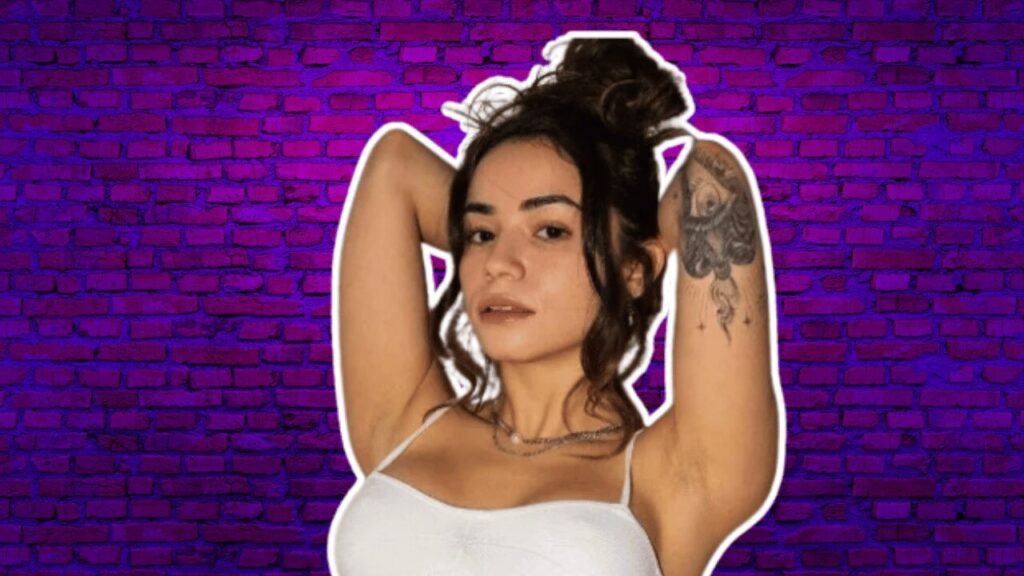You’ve probably stumbled upon the name Jameliz Benitez somewhere online, and if you’re anything like me, you’re curious about what all the fuss is about. The internet has a way of blowing things out of proportion, and when it comes to celebrities or public figures, things can get messy real quick. Today, we’re diving deep into the Jameliz Benitez nude controversy and uncovering the truth behind the headlines. But first, let’s set the record straight—this isn’t just about gossip. It’s about understanding the bigger picture, the context, and why this matters in today’s world of viral misinformation.
Now, I know what you’re thinking—another clickbait article trying to cash in on someone else’s misfortune. But hold up, this isn’t about that. We’re here to talk about the facts, the context, and why this story is important beyond the sensational headlines. It’s not just about one person; it’s about the culture we live in and how we treat privacy, consent, and the right to our own image in an age where everything seems to be up for grabs.
Before we jump into the juicy details, let’s establish something: this article is written with respect and integrity. We’re not here to exploit anyone’s situation or spread false information. Instead, we’ll be dissecting the situation, looking at the facts, and exploring the broader implications of such controversies. So, grab your favorite drink, get comfy, and let’s dive into the truth behind Jameliz Benitez nude photos and the controversy surrounding them.
Read also:Hikaru Nagi Sone 525 The Life Music And Legacy Of A Rising Star
Who is Jameliz Benitez?
Let’s start with the basics. Jameliz Benitez isn’t just another name on the internet—she’s a real person with a life, a career, and a story worth telling. Born and raised in Puerto Rico, Jameliz has made a name for herself in the entertainment industry. She’s a model, actress, and social media sensation, with a growing fan base that loves her for her confidence, charm, and authenticity.
But who is she really? To truly understand the context of the controversy, we need to look at Jameliz beyond the headlines. Below, we’ve compiled a quick overview of her life, career, and some key facts:
| Full Name | Jameliz Benitez |
|---|---|
| Occupation | Model, Actress, Social Media Influencer |
| Place of Birth | Puerto Rico |
| Age | Mid-20s |
| Social Media Platforms | Instagram, TikTok, YouTube |
As you can see, Jameliz isn’t just a random internet personality—she’s a professional with a growing presence in the entertainment world. Her career has been marked by hard work, dedication, and a willingness to take risks. But like many public figures, her life hasn’t been without its challenges, and the recent controversy has brought her into the spotlight in a way she probably never expected.
Understanding the Controversy
What Exactly Happened?
Alright, let’s get into the meat of the matter. The Jameliz Benitez nude controversy began when unauthorized photos of her surfaced online. Now, before you start thinking the worst, let’s clarify something: these photos were not leaked by Jameliz herself, nor were they shared with her consent. This is a classic case of digital exploitation, where someone’s private moments are taken and shared without their permission.
But here’s the thing—this isn’t just about Jameliz. It’s about a larger issue that affects countless individuals every day. In an age where everything can be captured, stored, and shared with the click of a button, privacy has become a luxury. And when it comes to women, especially those in the public eye, the stakes are even higher.
So, how did this happen? According to reports, the photos were obtained through a security breach of a private device. This kind of digital invasion is becoming increasingly common, and it highlights the urgent need for better cybersecurity measures and awareness.
Read also:Vegamoviesst 20 The Ultimate Platform For Movie Enthusiasts
The Impact on Jameliz
How Has This Affected Her?
You might be wondering how all of this has impacted Jameliz personally and professionally. The truth is, situations like these can be incredibly damaging, both emotionally and career-wise. Imagine waking up one day to find your private moments splashed across the internet, with strangers judging you and speculating about your life. It’s a nightmare no one should have to face.
For Jameliz, the fallout has been significant. She’s faced backlash from certain segments of her fan base, with some people questioning her integrity and even blaming her for the leak. But here’s the thing—blame doesn’t belong on her. She’s the victim here, and the focus should be on holding the perpetrators accountable.
Professionally, Jameliz has had to navigate the waters of public perception while continuing to pursue her career. It’s not easy, but she’s shown incredible resilience and strength in the face of adversity. And that’s something we can all admire.
Why Does This Matter?
The Broader Implications
This isn’t just about Jameliz Benitez—it’s about all of us. In a world where privacy is increasingly under threat, we need to have serious conversations about consent, digital rights, and the ethics of sharing personal information. The internet has given us incredible opportunities, but it’s also created a culture where exploitation can happen at lightning speed.
Here are a few key points to consider:
- Consent Matters: No one should have their private moments shared without their permission. Period.
- Accountability is Key: Those responsible for leaks like these need to be held accountable, both legally and morally.
- Education is Essential: We need to educate ourselves and others about the importance of respecting others’ privacy and boundaries.
By addressing these issues, we can create a safer, more respectful online environment for everyone.
Legal and Ethical Considerations
What Are the Laws Surrounding This?
Now, let’s talk about the legal side of things. In many countries, sharing intimate images without consent is illegal. This is known as “revenge porn” or “non-consensual pornography,” and it’s a serious offense that can carry hefty penalties. In the case of Jameliz Benitez, legal action has been taken to remove the photos from the internet and pursue those responsible for the leak.
But laws alone aren’t enough. We also need to foster a culture of respect and accountability. This means calling out behavior that contributes to the problem, whether it’s sharing explicit content without permission or engaging in online harassment.
Some key statistics to keep in mind:
- According to a study by the Cyber Civil Rights Initiative, 1 in 8 internet users have experienced non-consensual image sharing.
- Women are disproportionately affected by this issue, with 78% of victims being female.
These numbers are alarming, and they highlight the urgent need for change.
Supporting the Victim
How Can We Help?
If you’re reading this and feeling outraged about what happened to Jameliz, good. Now, let’s channel that outrage into action. There are several ways you can support her and others in similar situations:
- Don’t Share the Photos: This might seem obvious, but it’s crucial. By not sharing or engaging with the content, you’re helping to limit its reach.
- Speak Out: Use your voice to call out exploitation and support victims. Social media can be a powerful tool for change.
- Stay Informed: Educate yourself about digital rights and privacy laws. The more you know, the better equipped you’ll be to protect yourself and others.
By taking these steps, we can all play a role in creating a safer, more respectful online community.
Debunking Myths and Misconceptions
Separating Fact from Fiction
With any controversy, there’s bound to be misinformation floating around. Let’s address some of the most common myths and misconceptions about the Jameliz Benitez nude controversy:
- Myth: Jameliz Shared the Photos Herself. Fact: The photos were obtained without her consent and shared without her knowledge.
- Myth: She Deserved It for Being a Public Figure. Fact: No one deserves to have their privacy violated, regardless of their profession or status.
- Myth: There’s Nothing We Can Do About It. Fact: There are legal and ethical steps we can take to combat digital exploitation and support victims.
By dispelling these myths, we can help ensure that the conversation remains focused on the facts and the real issues at hand.
The Role of Social Media
How Platforms Are Responding
Social media platforms have a responsibility to protect users from exploitation and harassment. In the wake of the Jameliz Benitez controversy, several platforms have taken steps to remove the unauthorized photos and prevent their further spread. But is it enough?
Here’s what some of the major platforms are doing:
- Instagram: Removing content that violates their community guidelines and providing resources for victims.
- Twitter: Implementing stricter policies around non-consensual image sharing.
- Facebook: Partnering with organizations to educate users about digital rights and privacy.
While these efforts are commendable, there’s still a long way to go. Platforms need to be more proactive in preventing exploitation and holding bad actors accountable.
The Future of Digital Privacy
What’s Next?
As we look to the future, it’s clear that digital privacy will continue to be a major issue. The rise of AI, facial recognition technology, and other innovations means that our personal information is more vulnerable than ever. But there’s hope. By advocating for stronger laws, better education, and a culture of respect, we can create a safer digital landscape for everyone.
Here are a few predictions for the future:
- Increased focus on cybersecurity and data protection.
- More robust legal frameworks to address digital exploitation.
- Greater awareness and education about digital rights and privacy.
While the road ahead won’t be easy, it’s one we must travel together.
Conclusion
In conclusion, the Jameliz Benitez nude controversy is more than just a sensational story—it’s a wake-up call about the state of digital privacy in today’s world. By understanding the facts, addressing the broader implications, and taking action to support victims, we can all play a role in creating a safer, more respectful online environment.
So, what can you do? Start by educating yourself and others about digital rights and privacy. Speak out against exploitation and harassment. And most importantly, treat others with the respect and dignity they deserve.
Before you go, I’d love to hear your thoughts. Leave a comment below and let’s continue the conversation. And if you found this article helpful, don’t forget to share it with your friends and followers. Together, we can make a difference.
Table of Contents
Legal and Ethical Considerations
What Are the Laws Surrounding This?


